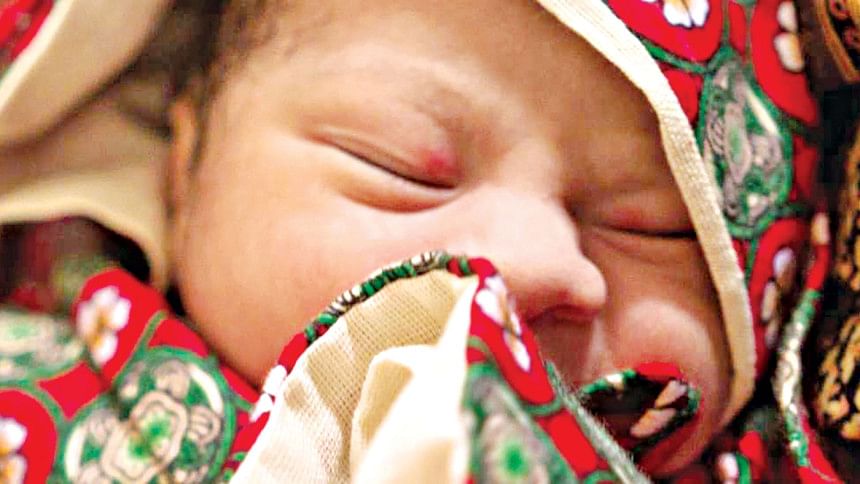Saving newborn lives is not much costly!

The results of a new clinical trial, published on October 23, 2020 in the New England Journal of Medicine, show that dexamethasone — a glucocorticoid (a type of steroid) can improve survival of premature babies when given to pregnant women at risk of early preterm birth in low-resource settings.
The study was conducted in women who are in weeks 26-34 of their pregnancy. An earlier study demonstrated a higher risk of mortality if steroid is given in term labour. Thus, healthcare providers must have access to ultrasound to accurately date the pregnancies.
Women are most likely to benefit from the drug if receive for at least 24 hours and ideally 48 hours before giving birth to give enough time to complete steroid injections for maximal effect. Thus, healthcare providers must also have the means to select the correct women. In addition, babies must receive sufficiently good-quality care when they are born.
The impact is significant: for every 25 pregnant women treated with dexamethasone, one premature baby's life was saved. When administered to mothers at risk of preterm birth, dexamethasone crosses the placenta and accelerates lung development, making it less likely for preterm babies to have respiratory problems at birth.
Globally, prematurity is the leading cause of death in children under the age of 5. Every year, an estimated 15 million babies are born too early, and 1 million die due to complications resulting from their early birth. In low-income settings, half of the babies born at or below 32 weeks die due to a lack of feasible, cost-effective care.
''Steroid, a low cost, easily accessible intervention to pregnant mother at risk of preterm birth, should be offered to an acceptable range of population to save lives of millions of premature birth and reduction of morbidities; and also economic burden related to their total care.'' says Professor Saleha Begum Chowdhury, Secretary General of the Obstetrical and Gynaecological Society of Bangladesh (OGSB) who served as the Co-PI of the Bangladesh site of this multi-country study.
"Administration of cost effective, easily available corticosteroid to the mothers would thus prevent morbidity and mortality of the premature babies which in turn facilitate decreasing under-5 mortality. Important consideration would be the availability of the steroid and capacity building at the community level to get maximum benefit during window period.'' says Professor Dr Mohammod Shahidullah, Chairman and Professor of Neonatology, Bangabandhu Sheikh Mujib Medical University and Chairman, National Technical Working Committee on Newborn Health, who served as the Co-PI of the Bangladesh site of this multi-country study.
"Steroids are key to survival but only when combined with accurate pregnancy dating and minimum standard of care – a key issue that must be considered during scaling up of this life saving intervention," says Dr Abdullah Baqui, Director of the International Center for Maternal and Newborn Health and a professor of Internal Health at Johns Hopkins Bloomberg School of Public Heath, who served as the Co-PI of Bangladesh site of this multi-country study.
Conducted from December 2017–November 2019, the randomised trial recruited 2,852 women and their 3,070 babies from 29 secondary and tertiary level hospitals in Bangladesh, India, Kenya, Nigeria, and Pakistan. In addition to finding a significantly lower risk of neonatal death and stillbirth, the study also found there was no increase in possible maternal bacterial infections when treating pregnant women with dexamethasone in low-resource settings.
In Bangladesh, the study was conducted by Projahnmo Research Foundation in six hospitals in Dhaka and Sylhet under the guidance of Co-PIs.

 For all latest news, follow The Daily Star's Google News channel.
For all latest news, follow The Daily Star's Google News channel. 



Comments